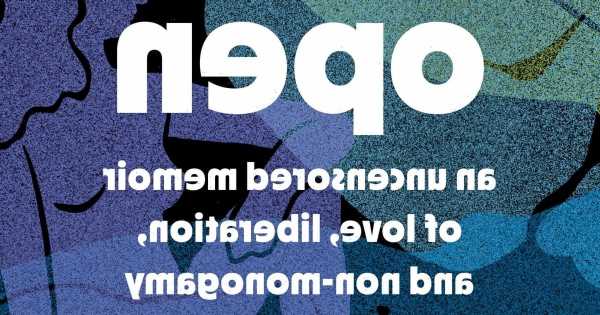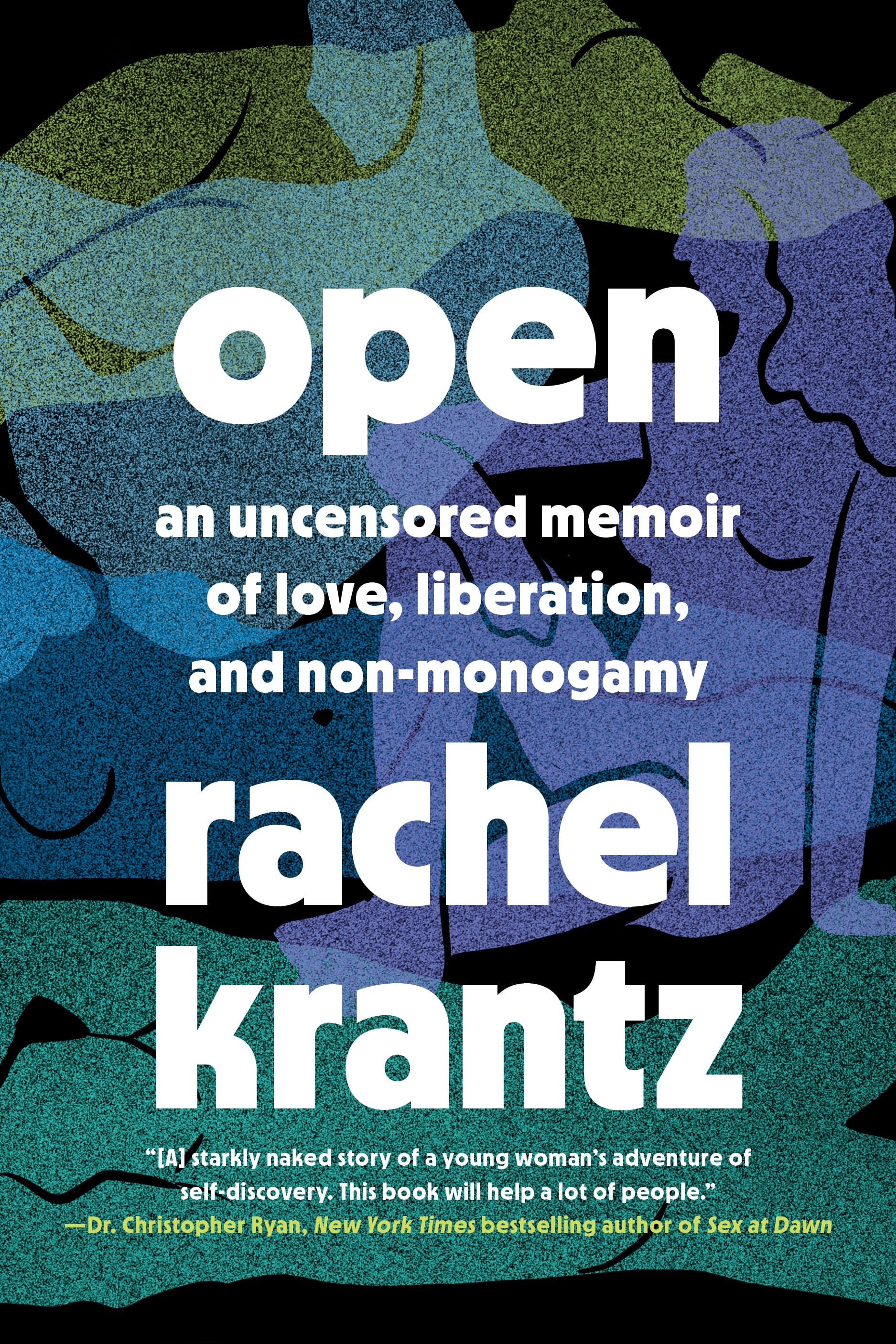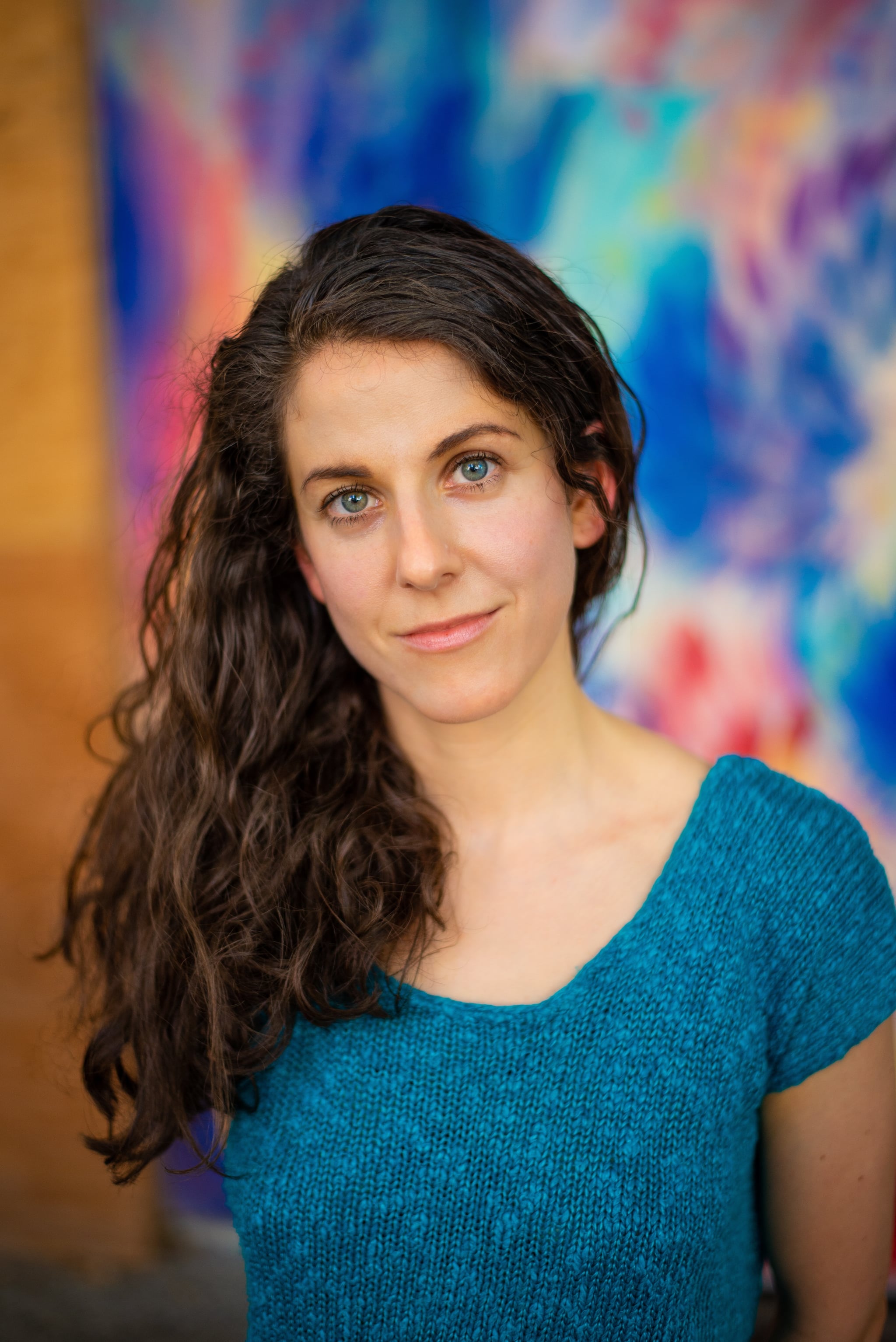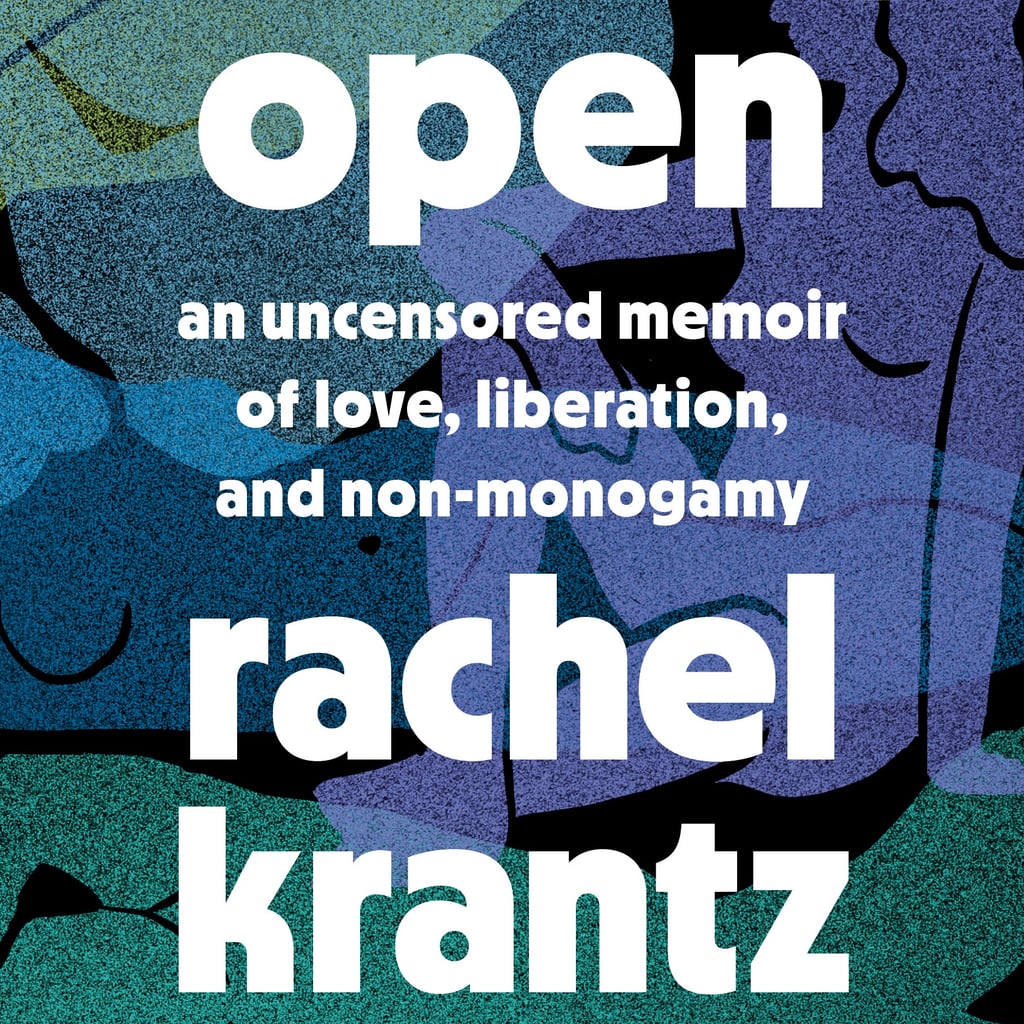I want to let you in on a little secret: the kinky community has a special place in my heart. However, the literature aspect of it all — not so much. I’ve read my fair share of BDSM-themed novels, and time and time again, I’m left lacking a deeper understanding of the characters or any sense of realism. As a kink-positive, polyamorous queer woman, I have desperately wanted to see a book that held all of my experiences of the kink world — the good, bad, beautiful, and downright ugly. I know that’s a tall order, and one that I never thought would come to fruition. However, Rachel Krantz’s debut memoir, “Open: An Uncensored Memoir of Love, Liberation, and Non-Monogamy,” gave me the depth I’ve searched for in erotic writing, and so much more.
I was skeptical at first, given my past experience with the genre. But Krantz creates a space of transparency in her storytelling — one that welcomes comfort and relatability, allowing me to be, well, open to her journey. Through the course of over 300 pages, Krantz shares detailed recollections of past partners. That begins with her longtime boyfriend “Adam,” with whom she falls into a Dom/sub, Daddy/babygirl dynamic. In many ways, Adam (who was 10 years her senior when they met) introduces Krantz to a wider world of sexual exploration, which allowed her to flourish into a new and expansive understanding of her own womanhood.
Krantz used her investigative-journalism background to connect with a variety of specialists — from psychologists to a Buddhist teacher — who were able to help her grow in understanding of the nuances in her past relationship. Over the course of the book, that includes themes like love bombing, gaslighting, manipulation, and ultimately healing from verbal and emotional trauma. Krantz explains, “I found I had a lot of questions as I was writing it and I was naturally able to use the book as an excuse to talk to almost whoever I wanted to, and ask them questions, and help me make sense of this story.”
Krantz also uses these resources to understand her developed attraction to and having sex with a woman, which she describes as “turning on music that I’d been subconsciously told to mute since before I knew how to operate a remote: music that I felt pretty certain no cis-man was going to be able to dance with me to.”
Between the diary entries that bookmark each chapter, the well-crafted research giving readers an intellectual look at Dom/sub relationships and nonmonogamy in a societal context, and the detailed conversations during and after Krantz and Adam’s inevitable breakup, readers receive a holistic viewpoint of how a 20-something regains control of her agency and personal narrative through her postseparation reemergence.
Though creating “Open” was, as Krantz notes, retraumatizing in some ways, she considers the process therapeutic in nature. Still, she confesses, “The gaslighting was difficult to revisit.” As a woman who went through a nearly identical situation, I was moved to reach out to Krantz to discuss her thoughts and feelings on the kink community and how she currently navigates relationships with dominant (and often narcissistic) personalities.
POPSUGAR: Where do you feel you fall on the spectrum within the complex realms of the BDSM, polyamory community?
Rachel Krantz: I guess I would consider myself a bisexual, polyamorous woman, though if you would’ve asked me about that time in the story, I would’ve been a little scared of both of those labels. For polyamory, there’s been instances depicted in the book and since where I can love more than one person at once, and do. During the pandemic, I was physically de facto monogamous with someone because we were cohabiting, but emotionally I still formed another relationship with someone else. Since the vaccines came out, I’ve been able to engage, and it just reaffirms my identity. It’s very different in my relationship with my nesting partner now, which is starting from such a different place of “I feel so much safer,” [we have] clear communication, and I respect his feelings of jealousy when they arise. Jealousy is not something that’s viewed as something to be squashed as a character flaw or be retrained, but rather held with compassion and understood [as] a conversation.
PS: You make it a point to be as inclusive as possible in your writing, including the race and gender identities of all of your characters. Can you speak to your purposeful choice of including calls to action for non-people of color?
RK: That was really important to me for a few questions. For one, during my time at Bustle, one of my main regrets is that I wasn’t doing the work around antiracist self-education, or activism, or gender-inclusive language. I was just churning out content, and sometimes I acknowledged my privilege, but then there was no calls to action . . . I really felt like that’s not good enough. I’ve been actively committed to doing this work and reading much more widely, and there are all these great thinkers who are writing about [diversity and inclusivity] from different angles that I also want to spotlight and lift up. It was important for me to provide calls to action throughout the book so you’re not just calling out how privilege plays into things, but also — white people often — here’s what you can do about that, here’s somewhere you can learn more about this and educate yourself, or where to donate. It’s less passive.
PS: Do you feel we’re moving into a space where polyamory will have less of a negative, taboo connotation?
RK: I do think it’s slowly moving towards more acceptance, but in the sense of any organized effort for the nonmonogamous community to have civil protections or rights, it’s nowhere near where the LGBTQIA movement was even four decades ago. My understanding on the legal front is there’s only very incremental progress; some states are showing the ability to recognize more than two parents in a household in instances where three people can be considered legal guardians. But you can still lose your job and lose your kids in most states with little to no legal recourse. Even the people in my book — most of them were out to their close friends and were still not out at work, so I still think it’s very stigmatized and there’s not a lot of research. But the research does exist about more than half the people who are nonmonogamous have experienced discrimination that they felt was explicitly due to being nonmonogamous. . . . We know from decades of research on queer populations that that kind of discrimination leads to poor relationship outcomes, poor mental health outcomes, high rates of suicide. Anytime you’re forced to be closeted or your lifestyle is so stigmatized, it’ll have a huge impact for sure.
PS: You touched on emotional and verbal abuse being less detectable and hard to pin down in comparison to physical abuse. Were there any early moments where you felt you noticed the emotional and verbal abuse signs, but didn’t lean into them initially?
RK: Pretty much the whole time. I think I write pretty early on in the book that he called and texted crazy — always a red flag, and I knew that because I edited an article saying so — and I just kind of [mentally] filed it under my growing eternal list of “misogynist red flags I’ll worry about later.” And as things went on, those just became more and more common. I think he was more and more comfortable expressing those kinds of feelings, and the culture that was established — and what is often established in these dynamics — can bring out a lot of your internalized misogyny, and it’s very seductive. As you see the story go on, you see how my body, under the weight of this traditional patriarchy — even though I’m subverting in all these supposed ways — gradually breaks down. I stopped having my period. I started having an eating disorder. I was overexercising, and my worth had become even more attached to how my body looks in these traditional norms. I didn’t trust my own judgment, or at least thought this man knew better than me. But you also see Adam suffering under that patriarchy he’s upholding . . . he wasn’t particularly happy or fulfilled. And he was often exhausted.
PS: When it comes to Adam, the relationship didn’t begin toxically. In fact, it was a beautiful union in the beginning, despite the dramatic ending. How do you navigate healing from a narcissist while not romanticizing the darker times of your relationship nor seeing the happier times through a negative lens?
RK: That’s a great question. I found this very hard, even when I had a commitment to having nuanced depictions and not overvilifying and not romanticizing. There’s a lot of internal narratives and how culture is; it’s really easy to fall into the victim-villain structure. I think the main way was to have friends who were consulting me throughout and I can go to and be like, “You were there. What was it like from the outside? What was happening?” Or having people who I really trusted to reaffirm me by saying, “No, this is important.” Also, just coming into [Buddhist] thought and practice, I learned a lot about these ideas of what compassion means . . . after studying more with [Buddhist teacher] Kaira Jewel Lingo at the start of the pandemic, [I learned] what compassion is and what it really means. Compassion doesn’t mean that you enable bad behavior or that you let it go by without being accountable. It means, ideally, that you have more energy to do all those things and have the necessary boundaries in place because you decide not to spend your energy hating them or angry at them, which is of course part of the stages. But not actively feeding the resentment, or the villain narrative, or feeling like they’re just evil and never going to change. Understanding this felt truer to how complex the dynamic [the relationship] was and the things I did love about him.
PS: How do you currently navigate staying away from narcissistic character traits within the BDSM community, and, if you can, what advice can you provide submissive-curious people on protecting themselves as well?
RK: I think, first of all, I’m humble. I think one of the differences from before I got into this situation was I was saying, “I would never lose myself in a relationship.” And it’s like: never say never. That’s the thing about people who are very persuasive or very charismatic: you can be humbled over and over again, but I do think one of the great gifts of having my boundaries so consistently violated over those years is [that] when I emerged from that situation, I had a sense of my boundaries. I trusted those instincts or impulses, or when something was a red flag to listen to that because I know what direction it goes. The other thing I would say is to find a counselor that’s kink-friendly. The last thing I’d add is seek out some community so you have some sense of community standards.
PS: You tapped into your own Dominant persona with the Liam character, which introduced you to your “switch” persona. Do you feel people in the kink community, or those interested in Dominant-submissive dynamics, should try both sides of the spectrum for a holistic approach to kink?
RK: I’m wary of the word “should” being prescriptive because people should do whatever they want as long as it’s consensual. Or you just have no interest in exploring that side of you, then I think that’s OK. Some people are just bottoms or tops and they’re not going to want to explore that, but I think if you have any curiosity at all, it’s very interesting and productive to explore both sides. Say you’re more of a submissive: [exploring your role as a Dominant] is going to help [you] understand better and empathize better with other Doms. You’re going to understand better how you as a submissive [can] actively contribute to the [desired dynamic] rather than being passive about it.
And the last thing I would say about that is, for people who have sex with straight men especially, it can be really beneficial to give them that gift of letting them experience submission in terms of their socialization. They are hardly ever told that it’s an OK way to be, during sex or otherwise. They don’t have experience with that kind of vulnerability or feeling swept away and letting someone else drive. It’s a big relief for them. I’ve often found with men, I start topping them for like one minute and they start weeping, like it’s so close to the surface that they’re not allowed to experience this. It can be a really nice container for helping them to explore that, and potentially a powerful way to healing certain toxic ideas with masculinity.
This interview has been edited and condensed for clarity.”Open: An Uncensored Memoir of Love, Liberation, and Non-Monogamy” ($20, originally $28) by Rachel Krantz is in stores now.
Source: Read Full Article



